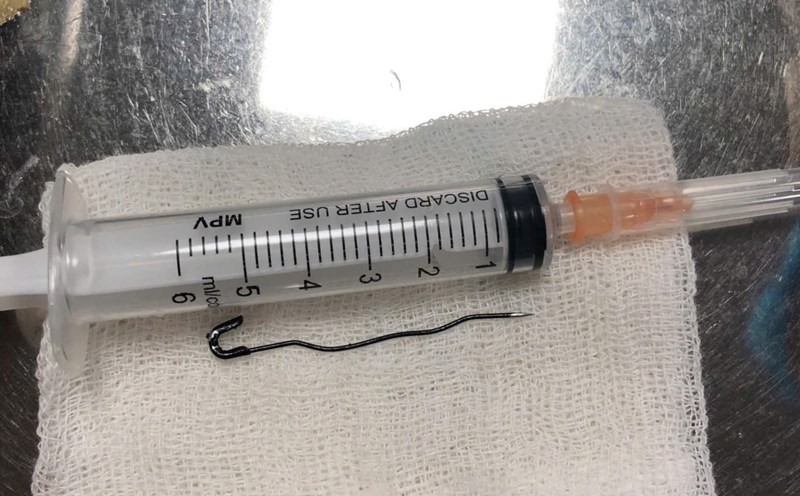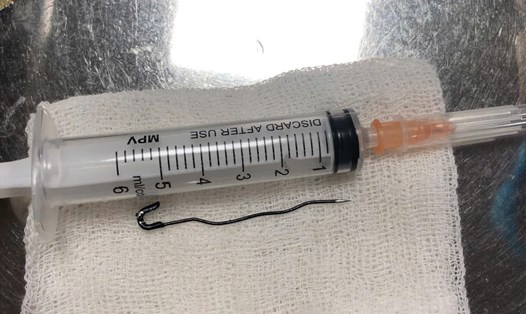Patient D.M.V (28 years old, Quang Nam province), is a repairman on An Bang island. On January 1, 2025, the patient experienced fatigue, loss of appetite and vomiting. On January 2, 2025, the patient had additional symptoms of agitation, cloudy consciousness, high fever with chills of 39.5 degrees Celsius. The patient was admitted to An Bang island infirmary and the initial diagnosis was: monitoring for meningitis differentiated from subarachnoid hemorrhage.
Military Hospital 175 coordinated with the island's military medical staff to closely monitor the patient's condition. However, after 1 day of treatment, the patient's condition did not show any positive changes. Because the cause of the disease had not been determined, the patient's prognosis was difficult. Therefore, the patient was airlifted back to the mainland.
At 7:30 p.m. on January 3, the Air Rescue Team approached the patient on An Bang Island. The patient's condition was noted to be disturbed in consciousness, eyes open but not making contact, very agitated, fever 39 degrees Celsius. The patient had obvious signs of infection, prominent meningeal signs (stiff neck) and signs of central nervous system infection, with high infection indicators. After being examined, evaluated and treated on the spot, the patient was transported to the plane.
“This is a very special case. We encountered many difficulties during the transport process. The patient was not conscious enough and did not cooperate with the emergency team, making it difficult to stabilize the patient during the transport process. Because the cause of the infection has not been determined, and because some agents have the potential to develop into an infectious disease, the emergency team applied strict cross-infection prevention measures to ensure patient safety as well as prevent the risk of an epidemic,” Captain Ta Van Bach shared.
The patient was then taken to the Emergency Department, Military Hospital 175 (HCMC) to conduct specific tests and interdisciplinary consultation for accurate diagnosis and timely specialized treatment.











